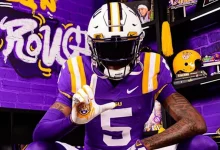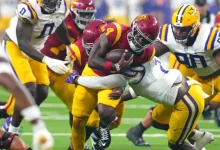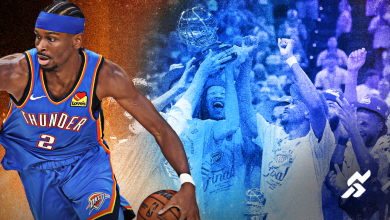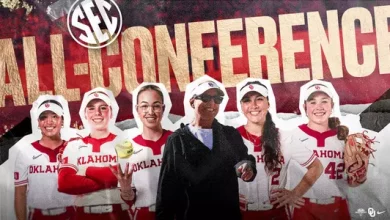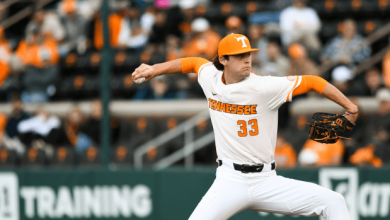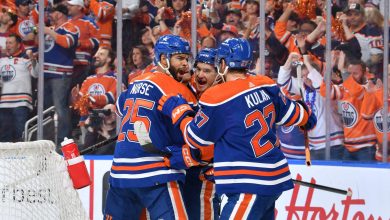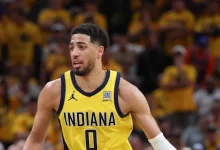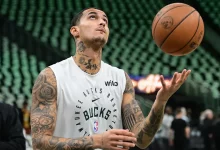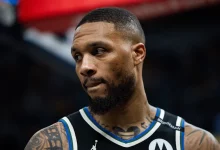Why Mario Cristobal of Miami isn’t yet focused on the season opening against Notre Dame.
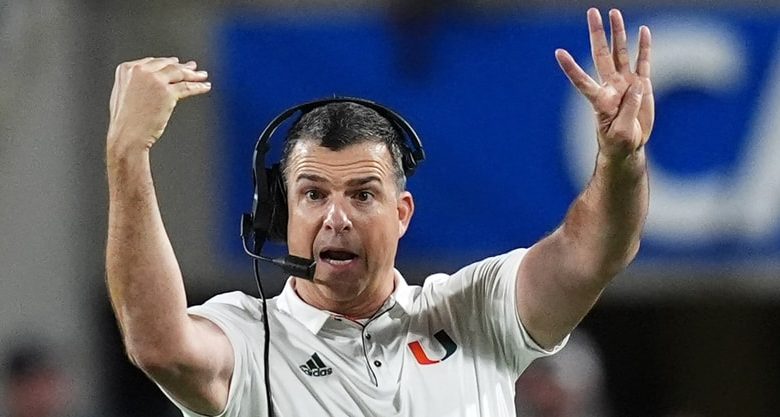
As the 2025 college football season looms, the University of Miami finds itself in a familiar position—rebuilding, reloading, and trying to reassert its place among the national elite. And with the Hurricanes set to open their season against storied rival Notre Dame, the anticipation around Coral Gables is palpable. A marquee matchup between two iconic programs seems like the perfect stage to make an early statement.
Yet, as summer workouts ramp up and fans and media circle September 1st on their calendars, head coach Mario Cristobal remains conspicuously calm—even detached—from the buzz surrounding the game. Instead of laser-focusing on Notre Dame, Cristobal is focusing on the building blocks: development, competition, depth, culture.
At first glance, this might seem surprising—some might even call it risky. But for those who understand Cristobal’s blueprint for sustained success, his approach to this massive opener begins to make perfect sense.
1. Culture Comes Before Competition
From the moment Mario Cristobal returned to Miami in late 2021, he made one thing crystal clear: culture is non-negotiable. Rebuilding the Hurricanes into a perennial contender wasn’t just about Xs and Os—it was about attitude, effort, accountability, and buy-in from every corner of the program.
For Cristobal, obsessing over a single game—no matter how big—risks compromising that long-term vision. The Notre Dame opener is certainly important, but Cristobal knows that Miami can’t beat the Fighting Irish if it hasn’t first conquered internal battles: discipline, consistency, and resilience.
In a recent offseason press conference, Cristobal emphasized this mindset:
“Every opponent matters, but what matters more is what’s going on in this building. We have to be a better version of ourselves before we think about anybody else.”
In other words, you don’t earn a win over Notre Dame in September—you earn it in June, July, and August.
2. Building Depth and Competition Across the Roster
One of the major flaws in Miami’s recent history has been the lack of depth behind starters. Injuries or inconsistent performances at key positions have often derailed promising seasons. Cristobal is determined to change that.
This offseason, he has prioritized roster evaluation and development over game-planning for Notre Dame. The Hurricanes brought in transfers, welcomed a strong recruiting class, and restructured positional groups—all of which must gel before they can execute a game plan against any opponent.
The quarterback competition, offensive line continuity, and defensive rotations remain fluid as the coaching staff evaluates who truly earns starting reps. Game-planning for Notre Dame can wait; identifying your best 11 on both sides of the ball cannot.
“We’re in a constant state of evaluation,” defensive coordinator Lance Guidry noted in spring. “Our identity on defense is still forming. That’s our focus—because without that, it doesn’t matter who we play.”
3. Avoiding Mental Exhaustion and Overexposure
Another reason Cristobal isn’t over-indexing on Notre Dame right now is psychological fatigue. College athletes have a finite mental bandwidth. Starting preparation for a major game too early can lead to burnout, overexposure to schemes, and diminishing returns by the time kickoff arrives.
Cristobal has seen this firsthand in his coaching career. His philosophy is to pace preparation intelligently, knowing when to push and when to pull back.
Instead of scripting Notre Dame-specific scenarios in June, Miami is drilling base concepts, developing fundamentals, and emphasizing situational mastery—3rd downs, red zone, two-minute offense. These are the pillars that will support any game plan, regardless of opponent.
Come mid-August, the staff will begin tailoring preparations for Notre Dame. Until then, the goal is to build a versatile, durable football team—not just a well-rehearsed one.
4. Cristobal Trusts His Staff to Handle the Long View
One of Cristobal’s strengths is delegation. While he controls the vision and sets the tone, he has surrounded himself with a strong, veteran staff capable of managing long-term scouting and game preparation in the background.
Analysts and coordinators are absolutely studying Notre Dame film and identifying tendencies. But Cristobal doesn’t need to inject that into every team meeting or practice rep—yet. That information is being filed and filtered, ready for rollout at the right moment.
“We’ve got the framework,” offensive coordinator Shannon Dawson told 247Sports in May. “There’s no panic. It’s about timing and execution when it matters most.”
This deliberate timing helps maintain focus during the summer, allowing players to master foundational skills before diving into specific opponent plans.
5. Trusting the Process, Not Just the Outcome
For a program like Miami, returning to national contention doesn’t hinge on one game—even if that game is against Notre Dame on a national stage. Cristobal knows this. He’s building a program—not chasing a one-week narrative.
Let’s not forget that Cristobal comes from the Nick Saban coaching tree, where the mantra is clear: “Trust the process.” The goal isn’t to peak in Week 1—it’s to be better each week, culminating in a November team that’s sharper, tougher, and more complete than the one that starts the season.
Cristobal believes that if Miami sticks to its process—installing identity, reinforcing toughness, correcting mistakes—the scoreboard in South Bend will reflect that work. Getting distracted by hype, narratives, or early scheming only muddies the water.
6. Learning From 2023 and 2024
Cristobal’s measured approach is also informed by the past. In his first two full seasons at Miami, the team had moments of promise but struggled with consistency. High expectations—especially early in the season—sometimes turned into crushing disappointment.
In 2023, a close early-season loss to Texas A&M revealed a lack of preparedness in the trenches. In 2024, Miami’s defense started strong but fell off midseason due to depth and stamina issues. Cristobal learned from those moments: the team has to be fully formed before it can compete at the highest level.
This time around, he’s intent on not peaking too early, not rushing development, and not losing sight of the big picture.
7. Let the Fans and Media Focus on the Hype
Cristobal also understands something critical about the media environment around Miami: the program is never short on drama, storylines, or attention. He doesn’t need to add to that fire.
Let the headlines hype up Notre Dame vs. Miami. Let the fans count down the days and reminisce about the Catholics vs. Convicts rivalry. That’s their job.
His job? Keep the locker room grounded, focused, and unified.
Players respond best to clarity and consistency. If the staff starts obsessing over a single opponent three months in advance, it sends the wrong message—every other game becomes secondary. That’s not how Cristobal builds teams.
8. Notre Dame Is a Moving Target
There’s also a tactical reason to delay full focus on Notre Dame: they’re changing, too.
Notre Dame, under head coach Marcus Freeman, is undergoing its own evolution—new personnel, shifting philosophies, and a new quarterback under center. Their tendencies in June may not resemble what Miami sees in September.
By waiting to install a Notre Dame-specific plan, Cristobal avoids overpreparing for an opponent that might look very different in Week 1.
Cristobal’s low-key approach to the Notre Dame opener is not a lack of urgency—it’s a sign of discipline and maturity. He knows that a program’s foundation must be solid before it can sustain the weight of national expectations.
If Miami is going to beat Notre Dame, it won’t be because they obsessed over them in June. It will be because the Hurricanes:
- Outworked opponents in the weight room and practice field
- Built a cohesive, accountable team culture
- Developed two- and three-deep depth charts
- Executed better fundamentals
- Trusted their preparation over the hype
When September rolls around, Cristobal will be ready. But until then, he’s exactly where he needs to be: in the trenches, doing the slow, hard work of building a championship team.
And maybe—just maybe—that’s what finally gets Miami back to where it belongs.

